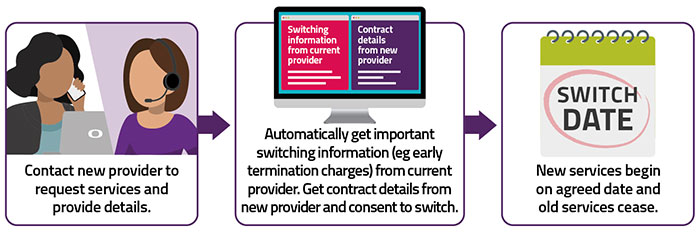After a rule change in 2015, broadband customers in the UK already have in place a quite simple and straightforward method of switching providers. The process can be instigated by the customer simply contacting the new supplier and leaving it to them. However, since the new rules came into place it has been noted that there are a number of significant speed bumps in the process that it would be good to address.
In consumer research Ofcom found that many people were still put off regularly switching broadband providers due to the following factors:
- Switching between providers using different networks or technologies still required customer contact with both entities. Without such coordination there could be a sizable overlap or gap between old and new services coming online. It was found that 40 per cent of people were put off by this potential hassle.
- Similarly, 40 per cent of people thought switching broadband suppliers would be too time-consuming.
- Lastly 25 per cent of respondents told Ofcom that the existing provider tried to persuade them to stay, and such debate wasn't wanted by consumers.
Last October Ofcom sketched out its plans to fix the above sources of consumer and ISP friction. Yesterday it provided a clearer explanation of its preferred 'One Touch Switching' plans and an alternative 'Code to Switch' system.

Ofcom's favoured One Touch process is shown in the outline diagram above. You will still get important info from your existing provider before you give your consent to switch and the change is actually scheduled.
An alternative switching method has also been put forward by Ofcom, and it appears to be a slightly longer process requiring the customer to get a code from their current provider – at the same time important info will be shared by the existing provider about termination, charges, etc - and passing the code to the new provider. This sounds a bit like the text-based mobile contract switching using a PAC (porting authorisation code). One hopes Ofcom has learned from earlier PAC supply shenanigans from mobile service providers if they go down this route.

Ofcom has started consulting on the proposals shown above. It will take providers time to significantly change systems and processes so whatever the outcome they are going to have until December 2022 to get ready for the new switching process.






